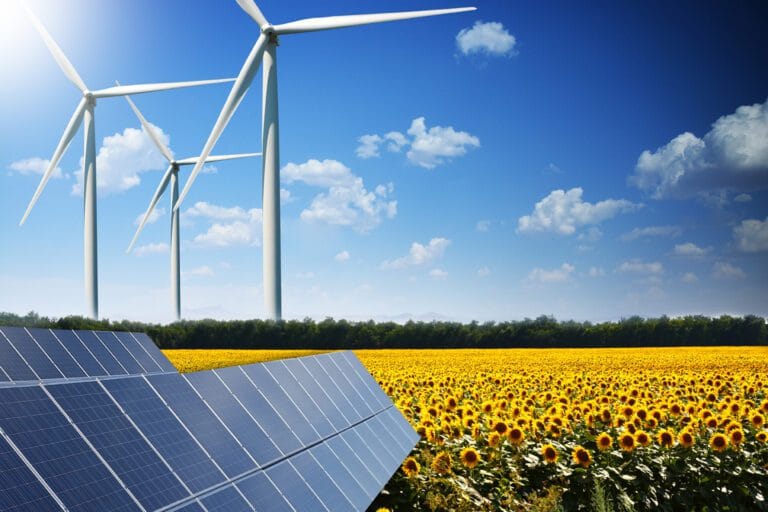Morocco has been engaged for over a decade in an ambitious energy transition, aiming to reduce its dependence on fossil fuels and promote renewable energies. However, despite clear objectives and significant investments, the country struggles to achieve the expected results. The cause: inadequate regulation and a legal framework that hinders the growth of projects.
In this interview with our colleague Challenge, Dr. Saïd Guemra, an expert in energy transition, analyzes the stakes and challenges to be met for the Kingdom to truly achieve its energy independence by 2050.
High ambitions, mixed results
Since 2009, under the impetus of the royal vision, Morocco has implemented an energy strategy based on energy efficiency and the development of renewable energies. The stated goal is to achieve an energy mix composed of over 65% renewable energies by 2050.
However, despite this ambition, the results remain below expectations. In 2023, the share of renewable energies in the country’s electric mix was only 21%, whereas it could have reached 40% if appropriate reforms had been implemented.
“In 2023, we are only at 21% renewables in our electric mix, whereas we could have been over 40% with appropriate regulation,” says Dr. Saïd Guemra.
According to him, the accumulated delay is notably explained by regulatory obstacles that hinder both large projects and self-production initiatives among households and businesses.
An inadequate regulatory framework for private investments
One of the main constraints to the development of renewable energies in Morocco is the absence of a clear and functional regulatory framework.
“We are in a situation of non-regulation,” laments Dr. Guemra. “Only part of law 13-09 allows private investments, but it faces numerous difficulties. According to the Competition Council, 98 projects under this law have not been authorized due to a lack of capacity, while the ANRE estimates that 7,236 MW would be available.”
At the level of individuals and industries, the situation is even more complex. Several laws (58-15, 40-19, 82-21) regulate the sector, but their implementing decrees have still not been published, thus preventing any significant development of self-production.
“In many countries, like Germany or Australia, self-production represents a significant part of the energy mix. Here, it remains marginal due to a lack of an incentive framework.”
To catch up and hope to achieve energy independence by 2050, Morocco should accelerate the installation of new capacities. Dr. Guemra estimates that it would be necessary to establish 700 to 800 MW of large renewables per year, as well as more than 80,000 self-production installations each year, requiring an investment of 3.2 billion dirhams per year.
Energy efficiency, an underutilized lever
If Morocco is focusing on the development of renewable energies, it must not neglect energy efficiency, which is a major lever for the energy transition.
“Energy efficiency is the priority even before renewables,” insists Dr. Guemra. “It allows for reducing energy consumption at a lower cost. However, to date, despite a goal of 20% energy savings by 2030, we have not even achieved a measurable 1% reduction.”
The potential is considerable, especially in industry, where energy losses remain very high. “We published the case of a Moroccan industrialist who was losing 60% of his solar production, unable to inject it into the grid,” he illustrates.
A lack of coordination and fragmented governance
In addition to regulatory blockages, the multiplicity of institutional actors complicates the implementation of the energy transition.
“Between MASEN, ONEE, AMEE, SIE, the Ministry of Energy, ANRE, distributors, and the Ministry of the Interior, energy governance is fragmented. Each actor holds part of the decision, which considerably slows down projects,” explains Dr. Guemra.
He advocates for a simplification of procedures and the establishment of a single window for renewable energy to accelerate project processing.
“In Tunisia, the authorization request is addressed to a single body, which processes it in 15 days. In Morocco, we encounter a bureaucracy that hinders investment.”
A struggling job market
The lack of dynamism in the energy sector also impacts employment. Despite the training of many engineers and technicians specialized in renewable energies and energy efficiency, the labor market struggles to absorb them.
“Our young graduates find themselves unemployed or forced to retrain in other sectors,” regrets Dr. Guemra. “Many choose to emigrate to countries where the energy transition is more advanced.”
For him, the solution lies in a deep reform of the regulatory framework to energize the renewable energy and energy efficiency market, thus creating opportunities for young Moroccan talents.
Conclusion: an urgent and necessary reform
Morocco has enormous potential in renewable energies and energy efficiency. However, without a thorough reform of the regulation and governance of the sector, it will be difficult to achieve the objectives set for 2050.
“We have a clear vision and abundant resources, but we must remove the barriers that prevent their exploitation,” concludes Dr. Guemra. “If nothing changes, we risk missing a historic opportunity to guarantee our energy independence and strengthen our sovereignty.”
With Challenge Morocco


